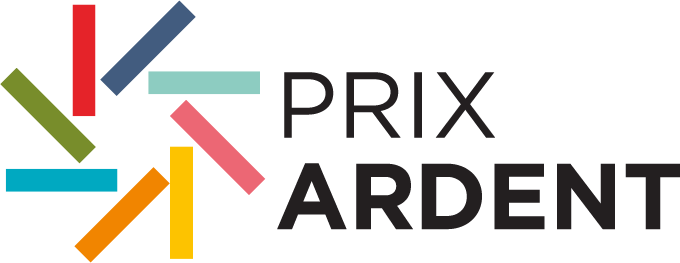In an increasingly digital world, illegal games of chance sites are multiplying in Belgium. At a time when casinos and gaming halls are closed due to the public health crisis, many players are turning to online gaming. They then risk being taken to a non-regulated site in just a few clicks. This dishonest competition has been denounced and fought with tenacity by Ardent Group for many years now through the voice of its CEO Emmanuel Mewissen.
Pirate sites, danger just a click away
In a constantly changing world, the arrival of digital has caused a real transformation in consumer habits. The public health crisis we are currently experiencing only strengthens this type of digital consumption. In this context, the online gaming offer has grown considerably, bringing an increase in illegal sites.
Despite the creation of a blacklist established by the Belgian Gaming Commission, Belgian players remain the prey of some 500 pirate operators on the market, as the Echo newspaper denounced in January 2021 through a study carried out by Ladbrokes. These illegal operators do not respect the legal obligations on advertising, deposit limits, minimum legal age or payment methods. They are a real danger for players, who no longer benefit from any security measures and are even at risk of legal proceedings.
In practice, blocking these sites is a complicated task. At the start of 2020, a bailiff’s study was carried out at the request of Gaming1, Ardent Group’s technological hub. This showed that the majority of sites on the blacklist were still active and easily accessible by Belgian players. A situation that Ardent Group denounces with daily complaints.
A battle taken to the Belgian House of Representatives
To combat the illegal sphere, a strong and competitive legal sector must first be created. It is with this objective that Emmanuel Mewissen, CEO and co-founder of Ardent Group, addressed the Justice Commission at the House of Representatives on 13 May 2020. A precious occasion for the private sector to take part in the national debate on the Act of 7 May 1999 on games of chance, betting, gaming establishments and the protection of players.
Emmanuel Mewissen brought expertise from the private sector to call for in-depth reform and spoke in favor of a collaboration between all the relevant actors: “Under the aegis of the regulator, under political regulations and under the operator’s expertise, together we must create a system that effectively protects players. Only collaboration with a competitive private sector, the only one to respect the Belgian regulation, will make it possible to hold back the rise of illegal sites.”
Advertising to channel players into the legal circuit
This commission was also a chance to approach the banning of advertising for the private sector. Belgium has very strict legislation on the promotion of games of chance. But this does not sufficiently take into account the digital reality. The current market is saturated with both Belgian and foreign illegal gaming sites. These operators are omnipresent and bombard players with advertising messages.
Emmanuel Mewissen explains: “We think advertising for games of chance should be regulated and limited, but we are against a total ban. We should channel players towards the legal sector, where we can identify problematic gaming behavior and we can track players to help them fight a potential addiction.
If we weaken the legal sector, we encourage the illegal sector. Our main goal is always to protect players. But we must think about the way we want to protect them. Would a total ban on advertising, even though it is omnipresent for the illegal sector, allow players to be protected? Do we want players to be constantly exposed to advertising for non-regulated gaming sites without being able to differentiate between the legal and illegal spheres? It seems essential for the legal sector to keep a certain visibility, at least where the illegal sector is present, through sponsoring, affiliation and online advertising.”
At Ardent Group, we are aware that the promotion of games of chance activities must be done from an ethical, responsible and cautious perspective. Thanks to a convention established by BAGO, we are committed to basing the advertising and marketing of our gaming brands entirely on a responsible gaming policy by respecting a series of bans and obligations to inform and protect players. In 2020, we also transformed all our advertising time to responsible gaming campaigns without any references to our gaming brands.
The Belgian model, an example to follow
Today, Belgium remains a real example in terms of the channeling rate of online gaming. In fact, in 2020, the attendance rate of legal operators was more than 80%, whereas it was only 17% in the Netherlands and 59% in Germany. The Belgian model also serves as an example in several countries, such as Switzerland, and the State of New York.
Belgium has also been at the forefront of the creation of EPIS (Excluded Persons Information System), a unique prevention tool that consolidates all the people excluded from gaming by the Belgian Gaming Commission. Among the 360,000 people excluded, almost 90% were only excluded as a preventative measure. Systematic identity checks on legal gaming sites allow the most vulnerable players to be protected. Unfortunately, to date, only the private games of chance sector uses this electronic database.
Even if Belgium is an example of the protection of players, the illegal competition is a constant struggle and there is still a long way to go. Efficient protection requires a dialog between the relevant actors: policy makers, the regulator, the private sector and organizations that specialize in addiction (research, health and community associations). If the legislation does not allow the creation of a strong and competitive legal sector, the channeling could fall to 79% by 2024. Therefore, the fight against illegal sites continues, always with player protection as the main goal.

